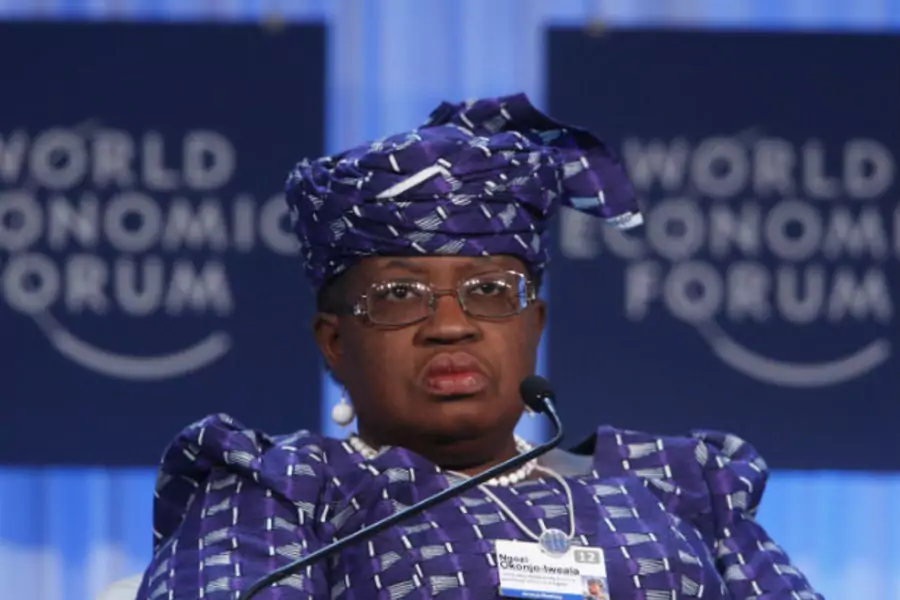More on:
Ngozi Okonjo-Iweala, the minister of finance in Goodluck Jonathan’s government, is widely respected by the international economic community. A veteran of the World Bank, she served as finance minister in Olusegun Obasnajo’s second administration (2003-2007) and successfully negotiated Paris Club debt relief.
Her presence in Jonathan’s cabinet has been an important source of confidence in Nigeria by the international investor community even as the country faces a diffuse jihadist revolt in the North labeled Boko Haram, continued ethnic and religious violence in the Middle Belt, and the threat of resumed violence in the oil patch with high levels of oil theft. She is closely tied to the Jonathan administration. Hence, it is no surprise that Jonathan’s political enemies are calling for her resignation on the implausible grounds that she is personally mismanaging the economy. She, in turn, is staunchly denying that she has any intention of resigning.
Ngozi Okonji-Iweala is an Igbo. That ethnic group played the primary role in the attempted secession of Biafra from the Nigerian Federation and the subsequent 1967-1970 civil war. The event deeply scarred Nigeria; estimates are that up to two million people died during the conflict, mostly from starvation and disease. A large percentage of the victims were children. A poster of a starving Igbo child helped energize support for Biafra’s cause in the United States, as did returning Peace Corps volunteers and humanitarian non-governmental organizations. Biafra, the civil rights revolution, and the anti-war movement associated with Vietnam were frequently joined together on American university campuses. However, there was little formal cooperation among the activists that led each cause.
The United States, Britain, and the (then) Soviet Union supported Nigerian national unity, while doing all that they could to stay out of the civil war. Britain and the Soviet Union did sell military equipment to the Nigerian government. Some American human rights activists accused the Lyndon Johnson administration of discouraging the provision of humanitarian assistance to Biafra.
Following the federal victory, the national government pursued a policy of “no winners, no losers,” and Biafra and the Igbo were rapidly re-integrated into the federation. However, there was an understanding that there was a glass ceiling in place that would prevent Igbos from ever assuming the presidency. Igbos–probably the best educated, most Christian, and most “westernized” of the principal ethnic groups–have flourished, and as such are often the focus of jealousy and resentment. Many Igbos, in turn, resent their perceived residual, second-class status.
Many of Jonathan’s political enemies see him as somehow pursuing an “Igbo agenda,” of which Ngozi Okonjo-Iweala allegedly is a part. Jonathan’s political support comes from the south, is heavily Christian, and includes many Igbos. This places Ngozi Okonjo-Iweala in a difficult position. Is’haq Modibbo Kawu, writing in Vanguard, reports that Ngozi’s alleged “biafranization” project has gone viral on the web. She confronted the accusations in a lecture she gave in Lagos. She acknowledged the allegations of an alleged Igbo agenda, especially with respect to public appointments. Kawu quotes her as saying, “my point is, I don’t give a damn. If the people got there on merit, they deserve it and we will stick with it as long as we know they didn’t get it through the back door.” Fair enough. But Kawu also quotes her as saying, “by the way, when you think of merit and competition Igbos don’t do badly and that is the problem, we do rather well. Somebody said everybody in the financial sector is Igbo; they begin to list people like the deputy governor of the Central Bank of Nigeria, the director general of the Stock Exchange, director general of Securities and Exchange Commission, director general of Debt Management Office, myself, and the Sovereign Wealth Fund.”
Kawu characterizes these remarks as Igbo “triumphalist.” That will resonate with Nigerians who resent Igbo success and despise the Jonathan government.
An h/t to Georgetown University’s Herb Howe for his insights and contributions to this blog post that was first published on September 19, 2013.
More on:
 Online Store
Online Store
